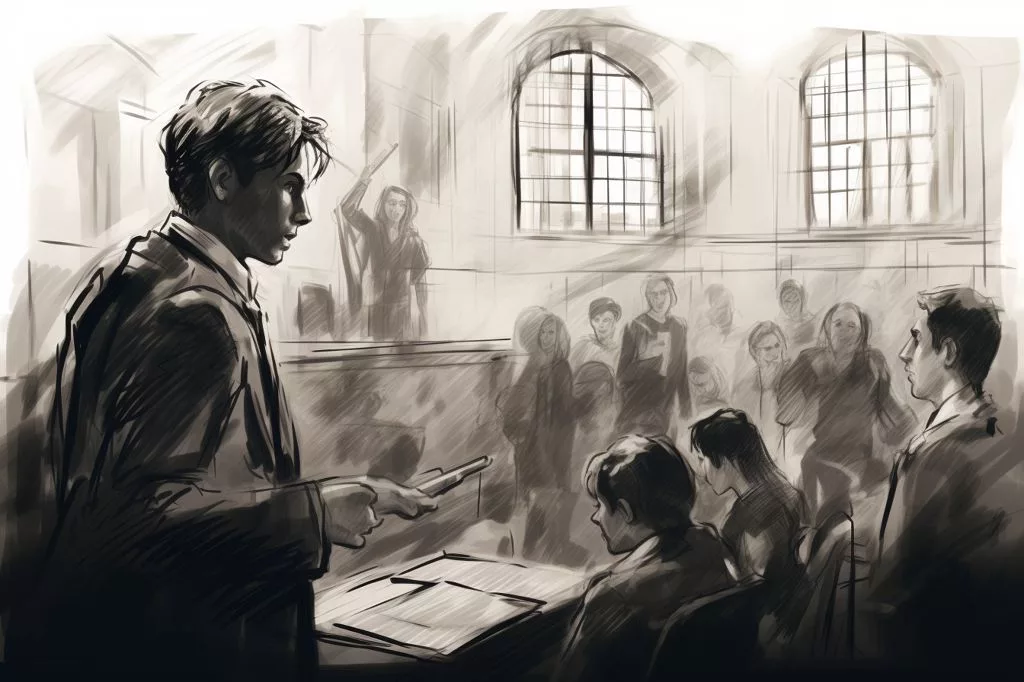South Africa has established the Border Management Authority (BMA) to address challenges in managing its borders and ports of entry. Led by President Cyril Ramaphosa, the BMA aims to develop an integrated, efficient, and secure system that promotes national security and economic growth. The BMA’s launch addresses issues such as undocumented foreign nationals and border management inefficiencies that have enabled corruption and cross-border crime to flourish. The BMA will play a significant role in integrating border management initiatives in the Southern African Development Community (SADC) region and transform six ports of entry into one-stop-border-posts to enhance efficiency.
South Africa Tackles Border Challenges with the Border Management Authority
South Africa has encountered numerous obstacles in managing its borders and ports of entry. To tackle these difficulties and maintain positive relationships with neighboring nations, the Border Management Authority (BMA) has been established, led by President Cyril Ramaphosa. The BMA focuses on developing an integrated, efficient, and secure system that promotes both national security and economic growth.
President Cyril Ramaphosa, Minister of Home Affairs Dr. Aaron Motsoaledi, Minister of Defence and Military Veterans Ms. Thandi Modise, Minister of International Relations and Cooperation Dr. Naledi Pandor, and other distinguished officials assembled at the Musina Show-Grounds in Limpopo for the BMA’s inauguration.
The BMA’s creation fulfills a long-standing pledge to develop a unified authority responsible for managing and securing South Africa’s borders. Well-managed and secure ports of entry will help the country prevent illegal import and export of goods, facilitate legal trade, and establish a more secure border to thwart illegal migration, human smuggling, and trafficking.
This is especially important as South Africa collaborates with other nations in the region and throughout the African continent to enhance intra-African trade. The BMA has been identified as a crucial component in tapping the potential of the African Continental Free Trade Area.
Addressing Border Challenges and Upholding Immigration Laws
South Africa’s immigration laws and regulations apply to foreign nationals seeking refuge or looking to live and work in the country. The BMA is responsible for enforcing these laws and regulations.
The BMA’s launch addresses numerous issues, including the growing number of undocumented foreign nationals entering South Africa, which exacerbates the nation’s social and economic problems.
Border management inefficiencies have enabled corruption and cross-border crime to flourish, damaging the economy. Furthermore, poor coordination and insufficient information-sharing between various management and enforcement authorities have left the country’s borders vulnerable.
The BMA is expected to offer a long-lasting solution to these structural challenges by consolidating roles, functions, and responsibilities within the broader law enforcement environment. It strives to address congestion, procedural delays, lengthy transit times, unpredictability, and high logistics costs.
The BMA has already made substantial progress. During a visit to the Beit Bridge Border Post, Presidents Ramaphosa and Emmerson Mnangagwa of Zimbabwe agreed that the BMA’s establishment would be a vital tool for regional development.
BMA’s Regional Role and Future Initiatives
The BMA will play a significant role in integrating border management initiatives within the Southern African Development Community (SADC) region. This will aid in eliminating various bureaucratic obstacles that impede trade, investment, and the movement of people across borders.
One of the BMA’s projects is the transformation of six ports of entry into one-stop-border-posts. This method will enhance efficiency at land border crossings by combining the stops necessary for processing exit and entry formalities.
In July, the BMA’s first border guards were stationed at vulnerable sections of the border line, including informal community crossing points. While the border guard will be responsible for border law enforcement functions, the South African National Defence Force will continue to safeguard and protect the border.
The BMA will serve as South Africa’s third armed service, following the South African National Defence Force and the South African Police Service. It will perform border management operations within ports of entry and law enforcement areas.
The BMA’s establishment is being implemented gradually, with steps already taken to incorporate various relevant functions from different departments under the BMA’s purview. Implementation protocols have been signed with the South African Revenue Service, Police Service, and Defence Force to facilitate the BMA’s efforts.
As President Ramaphosa congratulated the BMA Commissioner and his two deputies, who formally received their ranks that day, he highlighted that well-managed and well-protected borders are essential to South Africa’s security and development. With the BMA’s inception, the country ushers in a new age of border management, setting the stage for a safer and more prosperous South Africa.
What is the Border Management Authority (BMA)?
The Border Management Authority (BMA) is a new entity established by South Africa to address challenges in managing its borders and ports of entry. Its aim is to develop an integrated, efficient, and secure system that promotes national security and economic growth.
Who leads the Border Management Authority?
The Border Management Authority is led by President Cyril Ramaphosa.
What issues does the BMA address?
The BMA’s launch addresses issues such as undocumented foreign nationals, border management inefficiencies, corruption, cross-border crime, and poor coordination between various management and enforcement authorities.
What is the BMA’s responsibility?
The BMA is responsible for enforcing South Africa’s immigration laws and regulations, preventing illegal import, and export of goods, facilitating legal trade, and establishing a more secure border to thwart illegal migration, human smuggling, and trafficking.
What is the BMA’s role in the Southern African Development Community (SADC) region?
The BMA will play a significant role in integrating border management initiatives within the Southern African Development Community (SADC) region. It aims to eliminate various bureaucratic obstacles that impede trade, investment, and the movement of people across borders.
What is the BMA’s one-stop-border-posts initiative?
The BMA’s project is the transformation of six ports of entry into one-stop-border-posts to enhance efficiency at land border crossings by combining the stops necessary for processing exit and entry formalities.
What is the BMA’s future plan?
The BMA’s establishment is being implemented gradually, with steps already taken to incorporate various relevant functions from different departments under the BMA’s purview. Implementation protocols have been signed with the South African Revenue Service, Police Service, and Defence Force to facilitate the BMA’s efforts.
What is the BMA’s role in South Africa’s security and development?
Well-managed and well-protected borders are essential to South Africa’s security and development. With the BMA’s inception, the country ushers in a new age of border management, setting the stage for a safer and more prosperous South Africa.








